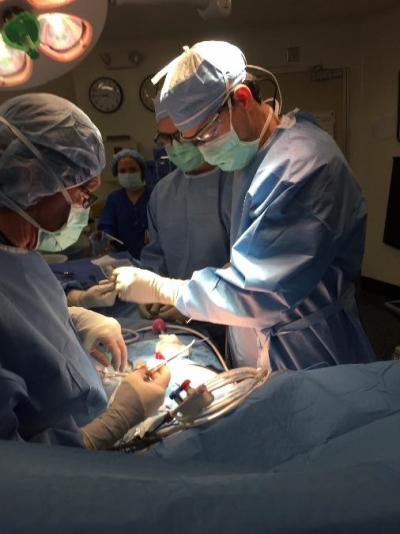Surgery
Program Introduction Video
Program Mission Statement
The mission of the Kaweah Surgery Residency Program is to provide a broad-based educational and clinical experience in the wider scope of the specialty, to train compassionate, competent and professional general surgeons with the skills and confidence needed to enter the unsupervised practice of surgery in a community setting or to succeed in fellowship training in a subspecialty area of surgery.
The program emphasizes the knowledge, skills and attitudes residents need
to work collaboratively in the healthcare delivery system and have a positive
impact on their patients’ lives and on their communities.

Kaweah Health Surgery residency program received its initial accreditation by the Accreditation Council for Graduate Medical Education Surgery Residency Review Committee on November 6, 2014, is on continued accreditation since October 2016. The program is affiliated with University of California, Irvine School of Medicine.
This five-year program offers three Categorical track positions. Two additional Preliminary track positions are available.
Kaweah Health is the primary site of five other ACGME-accredited residency programs in Emergency Medicine, Family Medicine, Psychiatry, Transitional, and Anesthesiology.
The Surgery Residency Program curriculum is designed and continuously reassessed to provide a broad-based educational and clinical experience in the wider scope of the specialty in order to prepare competent general surgeons with the skills and confidence needed to enter independent practice.
The program's wealth of clinical material and robust Graduate Medical Education support offer ample opportunities for clinical research, so that the trainees can build the academic credentials needed to successfully compete for further specialized training if they so choose.
The program's faculty is eminently qualified in the various areas of general surgery, and deeply committed to surgical education. An excellent ratio between core surgical faculty and residents and a limited number of off-site rotations during the junior years allow the program to tailor the didactic and clinical experience to the need and interests of the individual residents, and the program is well positioned to adapt to the evolving requirements of general surgery training.
Under the guidance and supervision of a dedicated faculty, the residents who choose to train here are afforded the opportunity and the challenge to individualize their clinical and academic curricula and leverage their skills and interests while learning to deliver safe, excellent, quality-driven, compassionate surgical care.
